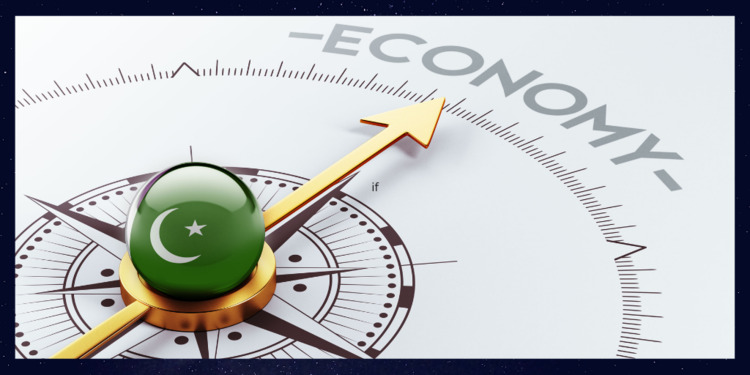By .Jahanzeb Alam

Navigating Pakistan’s Economic Challenges: A Path to Sustainable Growth
Pakistan, a nation endowed with abundant resources and a skilled labor force, has grappled with a historical backdrop of economic challenges that have hindered its pursuit of prosperity. However, by embracing strategic planning and adopting prudent policies, Pakistan possesses the potential to surmount these obstacles and set a course towards sustainable economic growth. In this article, we explore some of the most pressing economic issues confronting Pakistan while offering potential solutions.
One persistent issue that has dogged Pakistan is its fiscal deficit, where expenditures consistently outstrip revenues. This disparity fuels inflation and necessitates reliance on external borrowing. To address this issue, Pakistan must prioritize revenue generation through comprehensive tax reforms, an expanded tax base, and the relentless pursuit of curbing corruption. Equally imperative is the judicious management of government spending.
Another formidable impediment to economic growth in Pakistan is the ongoing energy crisis, characterized by recurrent power outages that disrupt industrial productivity and dissuade foreign investment. Resolving this challenge entails investments in alternative energy sources such as solar and wind power, concurrently bolstering the efficiency of the existing energy infrastructure.
- Advertisement -
High unemployment and underemployment rates, particularly among the youth, loom as significant concerns. Pakistan’s government can mitigate this issue by investing in skill development programs and nurturing entrepreneurship to foster job creation. The attraction of foreign investment can further fortify these efforts.
Persistent inflation erodes the purchasing power of citizens, predominantly those with limited incomes. Curbing inflation requires prudent monetary policies and regulation of prices for essential goods, all while ensuring equitable access to affordable necessities for vulnerable populations.
The mounting public debt diverts resources away from essential services, rendering a comprehensive debt management strategy essential. This strategy should encompass a reduced reliance on costly foreign borrowing and renegotiating favorable terms with international creditors.
Crucially, investing in education and healthcare is indispensable for the development of human capital. The government should allocate increased resources to these sectors to guarantee universal access to quality education and healthcare services.
Corruption remains a formidable roadblock to economic progress, necessitating fortified institutions, stringent enforcement of anti-corruption laws, and a relentless pursuit of transparency and accountability.
Effective infrastructure improvement, spanning roads, ports, and logistics, forms the backbone of economic growth. Investments in infrastructure projects have the potential to invigorate economic activity and streamline trade.
In terms of solutions, Pakistan’s economy can diversify beyond its reliance on agriculture and textiles, with a renewed focus on technology, manufacturing, and services. Leveraging Pakistan’s strategic location for enhanced regional connectivity, exemplified by the China-Pakistan Economic Corridor (CPEC), can serve as a catalyst for trade and economic growth. Encouraging exports through incentives and trade agreements offers a viable strategy for addressing the trade deficit.
Ensuring political stability and the sustained continuity of economic policies is paramount for attracting foreign investment. Furthermore, investments in human capital through education and healthcare are bound to yield long-term dividends.
Prioritizing energy sector reforms and reducing the burden of circular debt can stabilize Pakistan’s energy sector, ensuring a consistent power supply and bolstering industrial growth.
Pakistan’s real estate sector also assumes a pivotal role in the nation’s economic landscape, serving as a driver of economic growth, facilitating investment, and job creation. A collaborative effort between the government and the military can foster policies that promote responsible and sustainable real estate development, thereby contributing positively to the overall economy.
Moreover, it is imperative for the government and the military to collaborate harmoniously in addressing Pakistan’s economic challenges. A synergy of expertise can be achieved through joint task forces, fostering an environment conducive to foreign investment, enhancing governance efficiency, and promoting economic stability and security.
In conclusion, Pakistan’s formidable economic challenges can be surmounted through a unified effort involving the government, the Pakistan Army, and other stakeholders. By fostering collaboration and shared objectives, Pakistan has the potential to emerge as a prosperous and economically vibrant nation while simultaneously ensuring the security and stability of its citizens.











